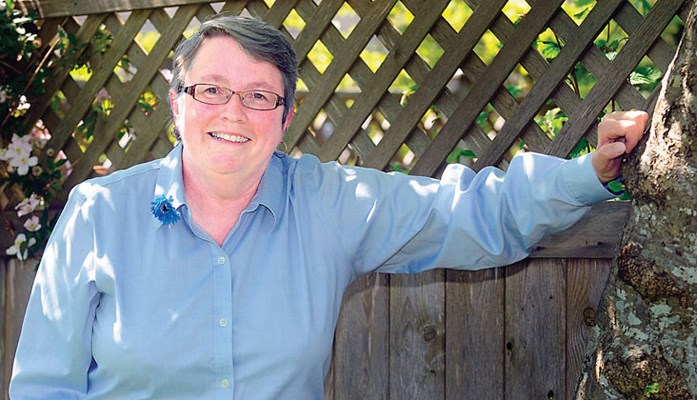It started innocuously enough.
It was January 2010 and Richmonds Sheila Tynan was trying to sign the letter r to someone who was deaf and found she couldnt do it.
I was at work and I was having this weird spasm in my finger, it was very odd, my index finger was slightly curved, said the retired postal worker. I never really worried about it until it occurred again.
Initially, it was thought she might have tendonitis, but when it kept happening, Tynan suspected something worse.
I went to see a plastic surgeon in Richmond because there was a real curvature in my finger, but he couldnt figure out what it was, she said.
When she didnt get any answers, Tynan decided to go see another plastic surgeon, hand and wrist specialist Dr. James Boyle.
It was Dr. Boyle who told me to go see a neurologist, she added.
It wasnt until April 2012 when she heard those three letters that devastated her life ALS.
I was numb, I was in shock and tears ran down my face, said the 60-year-old. I never even knew anyone who had ALS.
ALS stands for Amyotrophic Lateral Sclerosis, a fatal neuromuscular disease that affects a persons motor neurons that carry messages to the muscles. It is also often called Lou Gehrigs Disease named after the famous baseball player who died of ALS in 1941.
In Tynans case, ALS has affected her hands.
Several of the muscles in my hands have just disappeared, she added. This has caused me to lose some strength and a lot of fine-motor functions.
I cant button or zip my pants, I cant turn keys and cutting food is extremely difficult.
She said ALS can be a lonely disease.
I really needed to join an ALS support group because I felt so isolated in my disease, said Tynan, adding she feels blessed by the love and support of family and friends. The first time I met somebody who had it too, I didnt feel so alone.
Even though I have incredible support I needed to talk to someone who shares my fears.
She now attends a monthly ALS support group.
There is nothing I can do about ALS, but I do have a choice to be depressed or live my life to the fullest for as long as I can, she said.
To that end, Tynan is being proactive by raising money for ALS research, and by taking part in the 7th Annual Richmond Vancouver Walk for ALS later this month at Garry Point Park.
So far, Ive raised more than $4,353, she said. My doctor has told me that researchers hope to have a cure within five years so I am desperately trying to raise as much money as possible because money raised from the walk goes to ALS research grants.
Right now, the ALS community has reason to be hopeful. According to Wendy Tower, executive director ALS Society of BC, over the past decade the average lifespan of people living with ALS has extended by a full year.
There are new technologies and drug therapies that hold potential for patients today to function, communicate and live with greater comfort than ever before, Toyer said.
However, research is the key, she added, and for it to move forward, fundraising such as the walk, is vital.
The 7th Annual Richmond Vancouver Walk for ALS happens Saturday, May 26 at Garry Point Park in Steveston starting at 9 a.m., followed by the walk at 10 a.m. There will be music, food, family entertainment, prize draws and a silent auction.
Proceeds raised from this event go towards much-needed research and to provide support for those living with ALS.
For more information, visit www.walkforals.ca.
Statistics:
(Courtesy of the ALS Society of BC)
z ALS can strike anyone. The usual age of onset is 55-65. However, people under 20 have been diagnosed.
z In B.C., just slightly more than 300 people have ALS. In Canada, there are between 1,500 and 2,200 living with the disease.
z In at least 90 per cent of cases, there is no family history of the disease.
z Ninety per cent of people with ALS die within five years of their diagnosis.
z Two or three Canadians a day die of this disease.
z A person living with ALS will require an average of $127,000 in special equipment. Nursing can exceed that amount tenfold.

.jpg;w=120;h=80;mode=crop)

